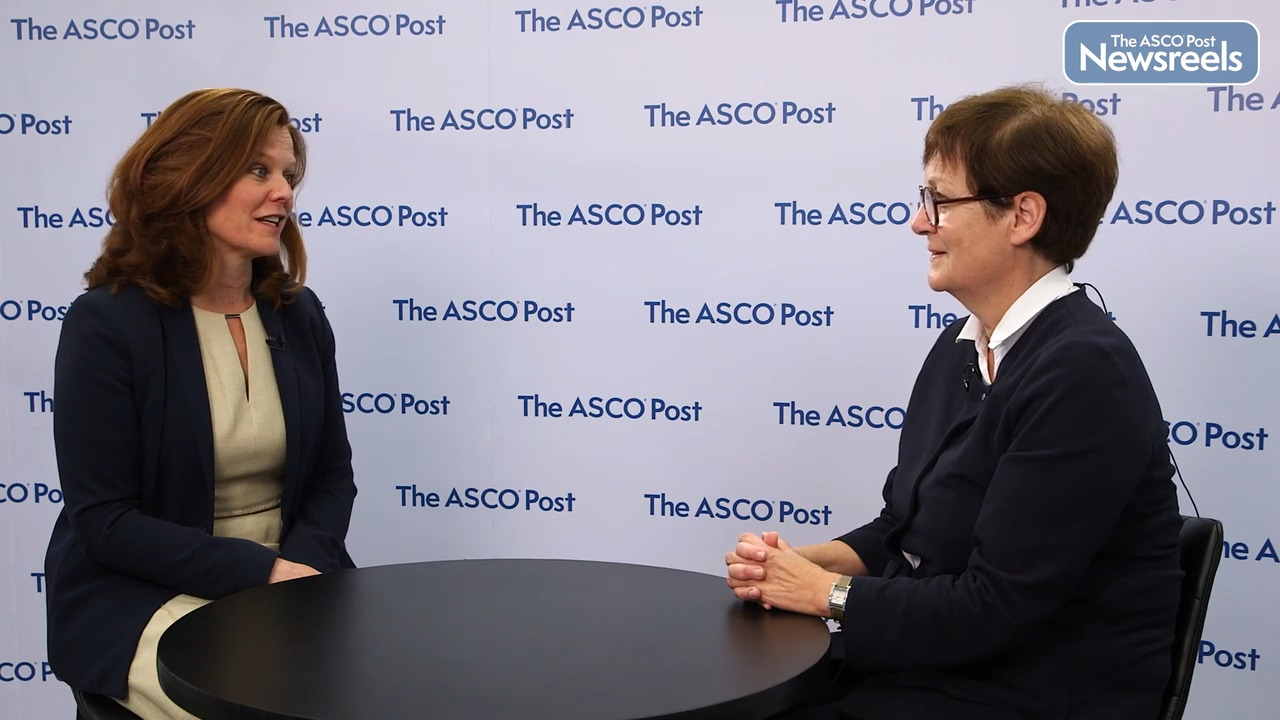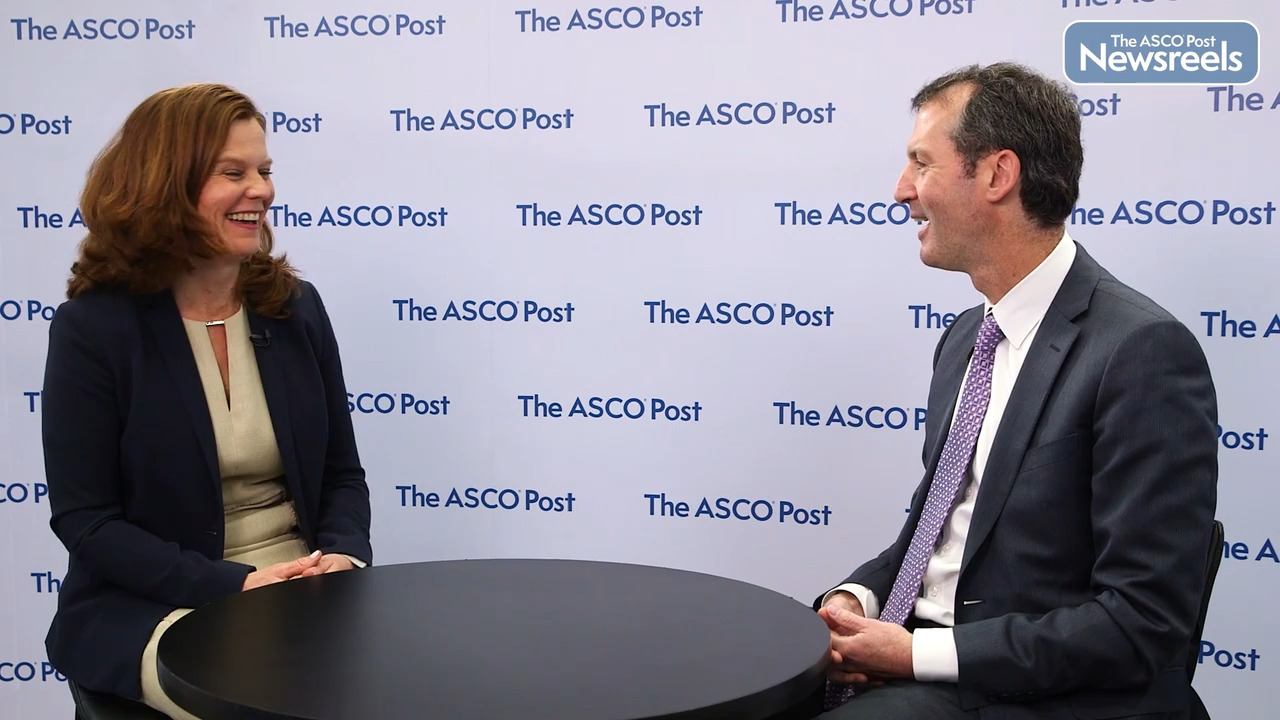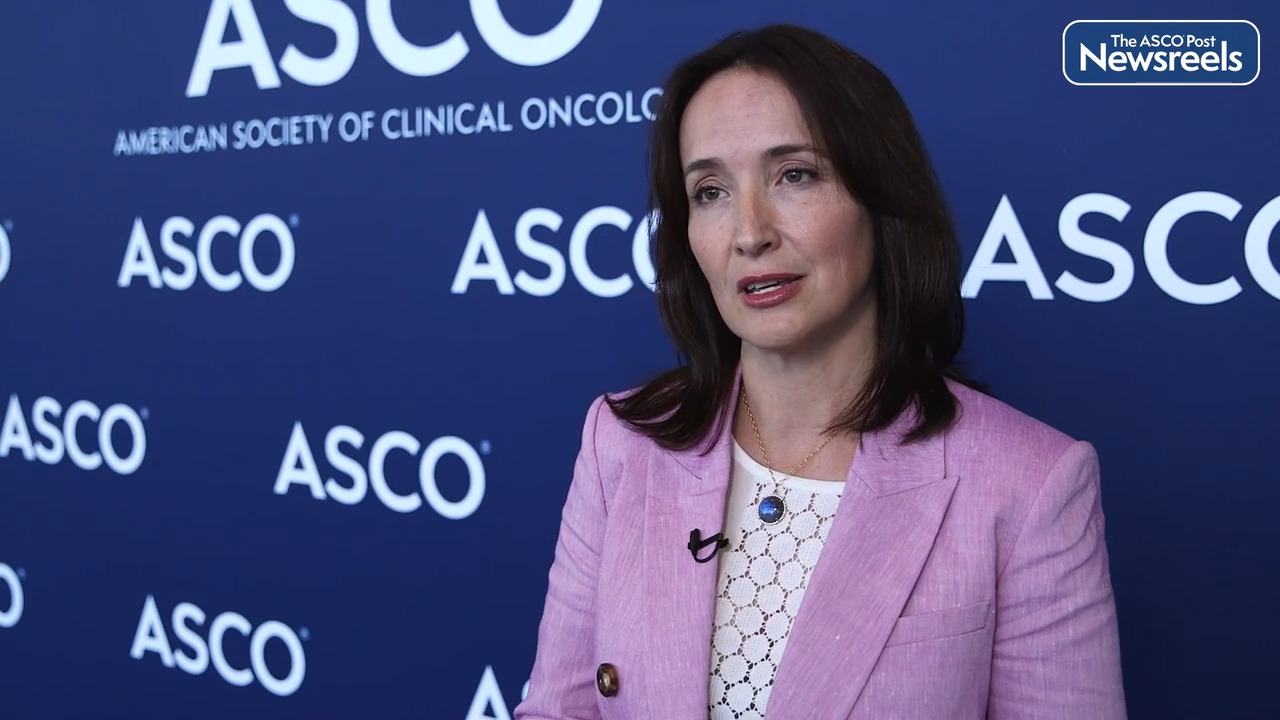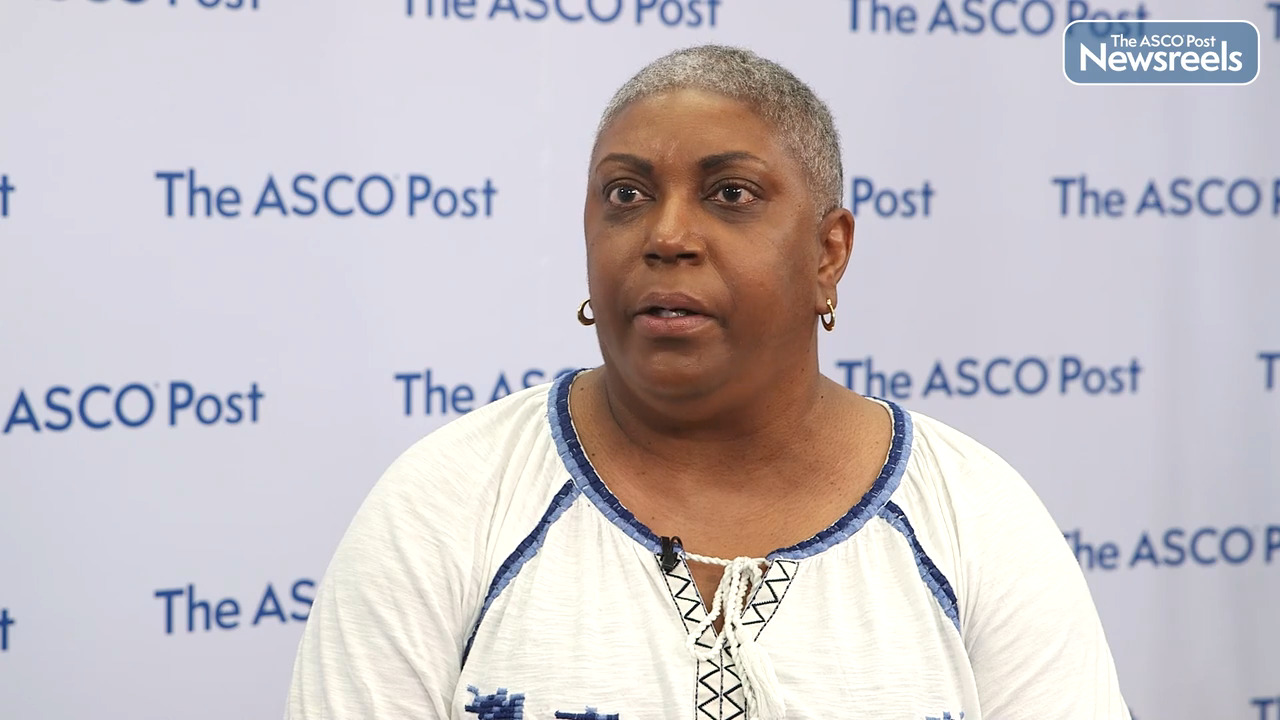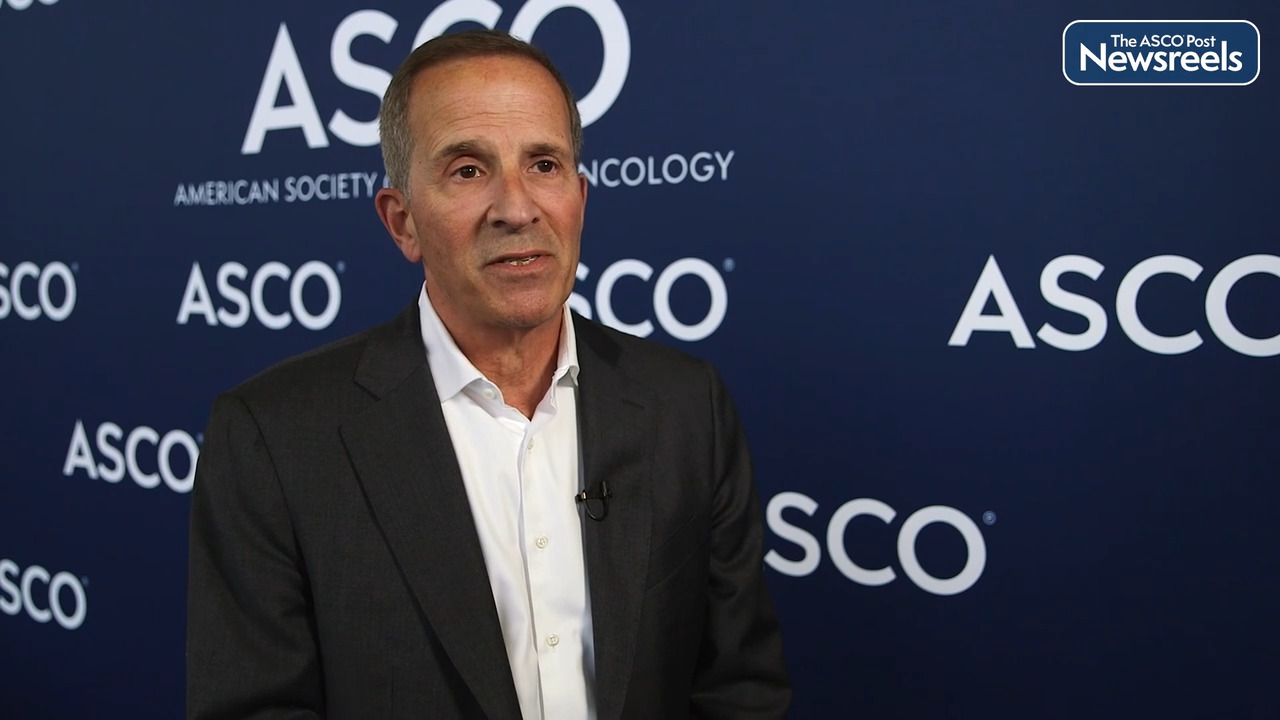Transcript
Disclaimer: This video transcript has not been proofread or edited and may contain errors.
Ursula Matulonis: Ignace, it's great to see you. Congratulations on this abstract. I think it's one of the exciting abstracts of ASCO 2022, and thank you for presenting the results. So, tell us about this trial and about tisotumab vedotin and its mechanism of action.
Ignace Vergote: Thank you for your compliment. The tisotumab vedotin is an antibody drug conjugate binding to tissue factor. Tissue factor is present in many tumors, but especially in cervical cancer. Almost always it's present. And like all antibody drug conjugates, it binds to tissue factor and then the active chemotherapy is monomethyl or Restatin-E, which is a chemotherapy which is used often in ADCs. Once it's incorporated in the cell, the antibody and the drug splits and cell death is the result, which also results in activation of the T-cells, which are promoted due to the apoptosis. This is also the reason why a combination with PD-L1 blockers is very interesting because, of course, in this way we get even a stronger immunological effect in addition to the chemotherapeutic effect.
Ursula Matulonis: So, tell us about the three arms that you presented, and also the really exciting results that you presented that's come out of those arms.
Ignace Vergote: Yeah. So the three arms which we have presented here is two in first line, recurrent cervical cancer, or advanced cervical cancer, stage four, usually. One cohort with tisotumab vedotin and carboplatin and one cohort with tisotumab vedotin and pembro. And the other is second line or third line. It's about three, three quarter second line, and the rest third line with tisotumab vedotin and pembrolizumab again.
Ursula Matulonis: And tell us about, the results are quite striking in terms of the overall response rates.
Ignace Vergote: Yes. In first line with tisotumab vedotin and carboplatin, we have a response rate of 55%, which is good. That's without pembro, without the bevacizumab. Like, when we compare to keynote A26, we have to take into account it's only two drugs. And very similar for, tisotumab vedotin and pembro and first line 41% response. And what is very interesting is that the response in the two cohorts with pembro is very long. We have follow-up of one and a half year almost. And the medium duration of response in the TV pembro is not even reached. And that's of course, something which we know with IOs. Also with siniprimot and second line. The responses, if there are responses, is very long. That a combination of the tisotumab vedotin and pembro, you see a higher response rate and a long response rate. More than one year.
Ursula Matulonis: And I think most of the patients on the Pembro arm were PD-L1 positive?
Ignace Vergote: Yes. That was about, depending on the cohort, between 85% and 91%. So, there were PD-L1 positive. We didn't select it for them, but we know that in cervical cancer about 90% is PD-L1 positive. So, that's concordant.
Ursula Matulonis: It's very, it's very impressive results. So, tell us a little bit about the toxicities of tizonumab and then if you saw any unusual toxicities, when, when putting this drug together with either carboplatin or with, with pembro.
Ignace Vergote: Well, I've been involved in tisotumab vedotin now for six, seven years already. I did the first in humans. The phase one I presented at ESMO, I think in 2017. The monotherapy, and then the consolidation trial, which led to the fast track approval of the monotherapy in second line. And in the beginning, the eye toxicity was more of a problem, especially when we gave tisotumab vedotin weekly. There was also cohort, but we learned how to treat this eye toxicity and how to prevent it with eye drops, with cooling pads on the eyes during the infusion. And so in this study, we have, I think, depending on the cohort, but we have about 3% grade three eye toxicity, but the main toxicities are grade one and two and quite quickly reversible now with these precautions. So, for the peripheral neuropathy, indeed, we see this as well. But, as you know we all have a lot of experience with paclitaxel and when I compare it, it's less and later. It's especially patients who are treated very long. We have been treating patients up to one year with tisotumab vedotin, and then you see it. Sometimes earlier, but it's mainly a late effect. And little bit different characteristics compared with what we know from paclitaxel.
Ursula Matulonis: Next steps for tisotumab and cervical cancer?
Ignace Vergote: Well, we are doing with GOG foundation, the ENGOT Cervix 12, which is a trial in second line with monotherapy and randomized phase three, which is running very well compared with the classical chemotherapies. So this is one thing. And then the other thing, of course, with these results, which we have presented here, we are doing a new cohort with the, with the triplet and the quadruplet. We have also presented that as a tip here, meaning tisotumab vedotin, carboplatin, pembro, and Bev. Or the triplets, if Bev is contraindicated. So, and this is of course the preparation of a first line trial as well.
Ursula Matulonis: Congratulations. That makes perfect sense. It's it's a really active drug and thank you for your really significant role in, in starting the trials and getting to this time point for a cancer that really hasn't had much in terms of movement forward in terms of new treatments. And advances. So, so thank you so much.
Ignace Vergote: Thank you.
